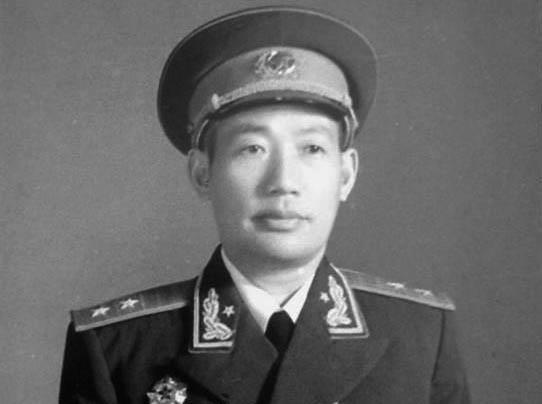As we all know, most of the founding generals came from poor backgrounds, let alone went to college, that is, they could finish primary school, and there were not many.
However, the founding lieutenant general introduced today is a standard college student named Du Ping.

In the early days of the founding of the People's Republic of China, Du Ping went to see the chairman, and Luo Ronghuan specially introduced himself to the chairman: "Du Ping is a rare college student in our army. ”
When the chairman heard this, he was also very happy and asked Du Ping: "Which university did you graduate from?" ”
Du Ping said a name: Qunzhi University in Changsha, Hunan.
The chairman laughed and teased, "I know, this is a pheasant university." However, the chairman quickly added: "Pheasant University also has a good one!" ”
In fact, this is just the chairman's joke, although Hunan Changsha Qunzhi University is a private school, but it is also a regular university, the trustees include Zhang Taiyan, Tan Yanmin, Yu Youren and other big celebrities, but it is not a "pheasant university".
Because of Du Ping's high level of education, after joining the Red Army, his superiors arranged for him to engage in propaganda work, and he served as the chief of the propaganda section of the 3rd Column of the Red 3 Army, the director of the political department of the Red 30 Army, and the political commissar.
During the Long March period, Du Ping was responsible for the rectification of the Red Army's radio troops, because many of the radio troops at that time surrendered from the Kuomintang troops, and the revolutionary will was not yet firm, and once they were shaken, they would cause heavy losses to the Red Army's communication work, so Du Ping's task was very important.
In this regard, Du Ping made sufficient preparations, carried out targeted education work for each soldier, and made him the most sympathetic person of these fighters, even under such difficult conditions as the Long March, the radio team that Du Ping was responsible for did not have a single deserter, ensuring the smooth progress of the radio work.
After the outbreak of the War to Resist US Aggression and Aid Korea, General Manager Peng personally appointed Du Ping as director of the political department of the Volunteer Army and accompanied the army on the expedition.
Although DuPin did not directly fight the enemy on the front line, the burden on his shoulders was also very heavy. Based on this situation, Du Ping personally inscribed a combat mobilization order for joining the DPRK, put forward the slogan of "fighting the first battle abroad," and also presided over the establishment of the "Volunteer Army Newspaper" to publicize the heroic figures emerging in the volunteer army and give great encouragement to the volunteer soldiers.
During the period of the War to Resist US Aggression and Aid Korea, the most important reason why the Chinese Volunteer Army was able to fight the US military to ask for forgiveness under such a disparity in weapons and equipment was that the officers and men of the Volunteer Army had strong spiritual strength, and Du Ping, as director of the Political Department of the Volunteer Army, naturally contributed to it.
After returning to China, Du Ping successively served as director of the Political Department of the Northeast Military Region and deputy political commissar and director of the Political Department of the Shenyang Military Region, and it was during this period that Du Ping discovered Lei Feng, a shining and exemplary figure.
As early as the end of the 50s, Du Ping heard about Lei Feng's deeds and was very moved, so he began to use Lei Feng as an advanced model and widely publicized it in the army.
Unfortunately, on August 15, 1962, Lei Feng was unfortunately killed while performing a mission at the age of 22. In addition to his heartache, Du Ping personally presided over the exhibition of Lei Feng's deeds and the drama creation around Lei Feng's deeds before his death.
In further contact, Du Ping felt that the character of Lei Feng had a very typical significance, so he decided to promote the spirit of Lei Feng to the whole country, so that Lei Feng became a role model that people in the country are still familiar with today.
Later, Du Ping was transferred to the political commissar of the Nanjing Military Region, and he successively excavated advanced models such as "Good Eighth Company on Nanjing Road" and "Guo Xingfu's Teaching Method." Even Xu Shiyou, commander of the Military Region, said with emotion: "In the Nanjing Military Region, Political Commissar Du plays a greater role than my commander. ”
After retiring in his later years, Du Ping was also immersed in calligraphy, practicing hard every day, the level of calligraphy was very high, he was known as a "general calligrapher", and was also invited to serve as an honorary director of the Chinese Calligraphers Association.
On March 4, 1999, Du Ping died of illness in Nanjing at the age of 91.